Spicing up breakfast: Smith College seeks help from Humane Society with its vegan pledge
|
Published: 01-21-2024 12:22 PM
Modified: 01-22-2024 5:00 PM |
NORTHAMPTON — Inside Smith College’s Chase House building on a recent morning, several campus chefs could be seen working diligently in the kitchen, even after the usual breakfast hours in the building had ended.
These food experts — about a dozen who work at the college’s Dining Services department — pored over recipe books featuring unique menu items and prepared ingredients that differed from the norm, such as mayonnaise made from chickpeas, a granola bowl mixed with maple syrup and muffins cooked with peppers and Beyond Meat sausage.
Their goal? Spice up the vegan, plant-based breakfast menu offered to students as part of a wider campus pledge made six years ago to ensure that more than 50% of its entree items are plant-based. A particular challenge in that initiative comes in the form of breakfast and brunch items, which are often associated with assuredly non-vegan products like eggs and pancakes.
“Breakfast and brunch is always a tough meal to incorporate really delicious, nutritious, plant-based food,” says Patricia A. Hentz, director of residential dining for Smith College Dining Services.
That’s why the college brought in two chefs from the National Humane Society to lead the training, which Hentz says is “very progressive for our industry of college food service.” She believes Smith is the first college in the country to work with the Humane Society on this type of training program.
“When you’re trying to veganize food, whether it’s for allergy or cultural reasons or just personal preference, breakfast is tough,” said Dorrie Nang, who works for the National Humane Society as a food service innovation specialist. “Our chefs have 18 recipes that they just released in July, and we’re doing them here for the first time.”
The recipes have origins from all corners of the world, from a custard-based French Toast to a vegan version of shakshuka, a North African dish usually made with eggs and tomato sauce.
“We have a global background, and so does Smith,” said Mohamed Alqamoussi, a chef with the Humane Society who helped coach the campus chefs on preparing the recipes together. “It’s good for students to try other foods from other cultures.”
Article continues after...
Yesterday's Most Read Articles
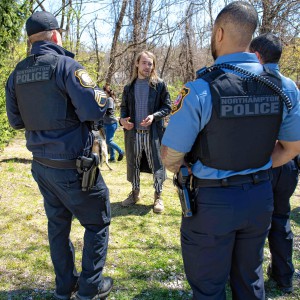 Homeless camp in Northampton ordered to disperse
Homeless camp in Northampton ordered to disperse
 The Iron Horse rides again: The storied Northampton club will reopen at last, May 15
The Iron Horse rides again: The storied Northampton club will reopen at last, May 15
 Final pick for Amherst regional superintendent, from Virgin Islands, aims to ‘lead with love’
Final pick for Amherst regional superintendent, from Virgin Islands, aims to ‘lead with love’
 Authorities ID victim in Greenfield slaying
Authorities ID victim in Greenfield slaying
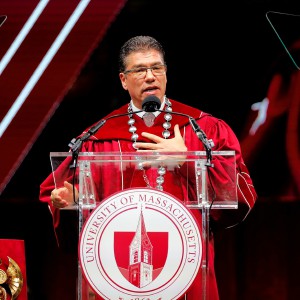 Reyes takes helm of UMass flagship amid pro-Palestinian protests
Reyes takes helm of UMass flagship amid pro-Palestinian protests
 Police report details grisly crime scene in Greenfield
Police report details grisly crime scene in Greenfield
In addition to ensuring that foods have a diversity of culture and flavor, another challenge for making vegan cuisine is ensuring that the food is also healthy for people to consume, Alqamoussi said.
“A lot of vegan food isn’t necessarily healthy,” he said. “Just because you’re saving animals doesn’t mean you should have to harm your body with oils and processing and all that.”
For example, although vegan versions of mayonnaise can be made using several oils, Alqamoussi instructs the Smith chefs to use a version made from chickpeas to create a healthier blend.
And instead of using a fake meat substitute for a breakfast taco recipe, the chefs use lentils, which aren’t as processed and cost less to purchase.
Another challenge for the chefs in preparing vegan meals — knowing which ingredients are and are not vegan. The chefs’ recipe for a cranberry pecan granola bowl calls for maple syrup as a coating, rather than the more usual ingredient of honey.
“Because it’s the byproduct of an animal, a true vegan will not eat it,” said Moises Torres, a chef at Smith who specializes in vegan and vegetarian dishes. “I’ve found that out the hard way.”
The chefs developed the final dishes over the course of the last two months, continuously sampling and giving feedback to each other before settling on the final ingredients.
The dishes were first served to students on Thursday morning at the Cutter and Ziskind houses, with plans to gradually incorporate them into the menus across the school.
“We test recipes all year long, but we wanted to really focus in on the plant-based foods, and especially on breakfast,” Hentz said.
The introduction of more plant-based foods is part of an overall push by the college for greater sustainability, an initiative that also includes a $200 million geothermal project to power campus buildings. The college signed a commitment in 2015 to reduce meat consumption by 5% each year, with a goal of achieving more than 55% of its entrees to be plant-based by 2025.
Alexander MacDougall can be reached at amacdougall@gazettenet.com.

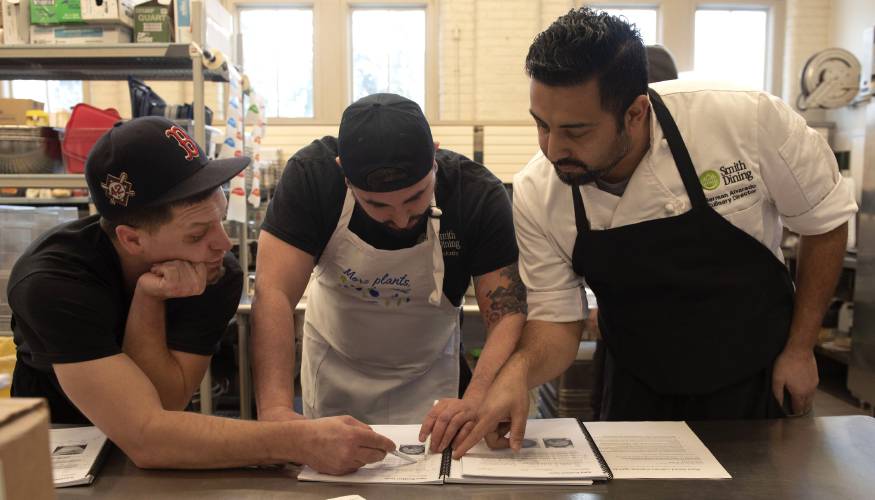
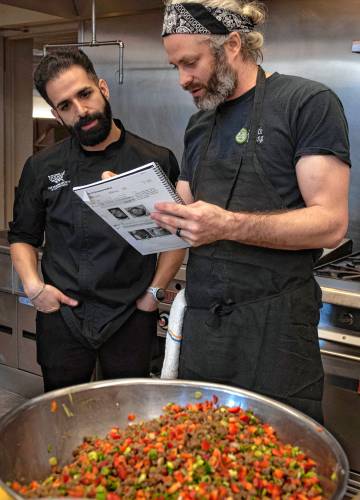
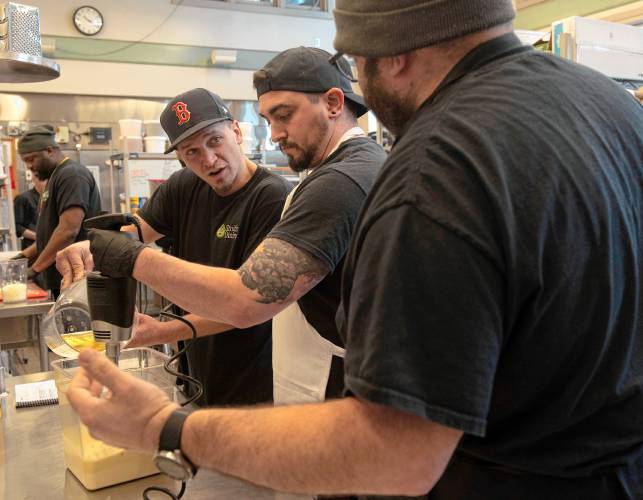
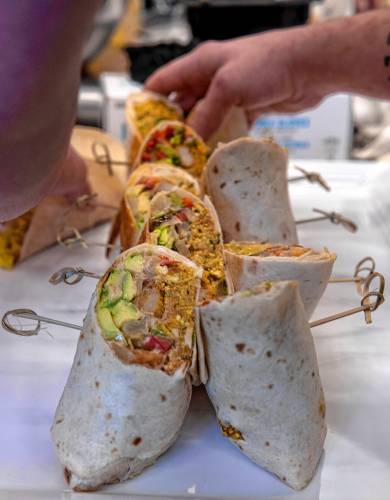
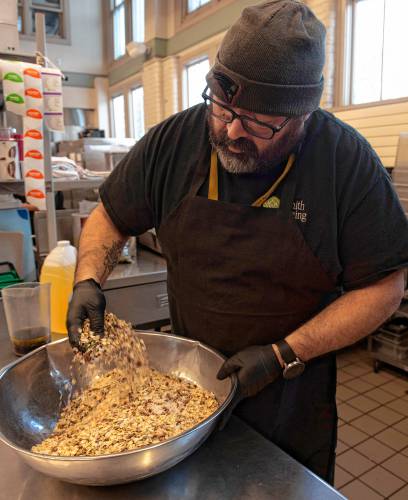
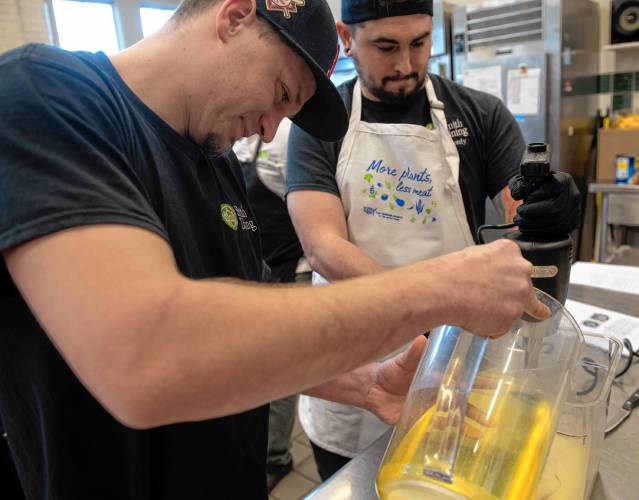
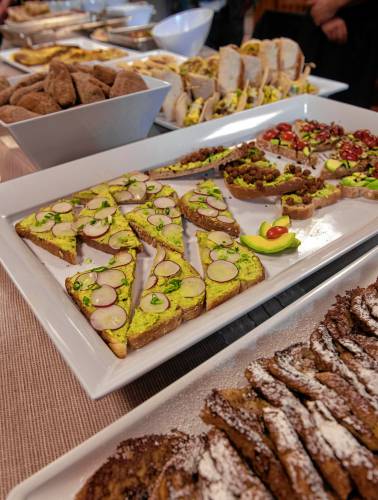
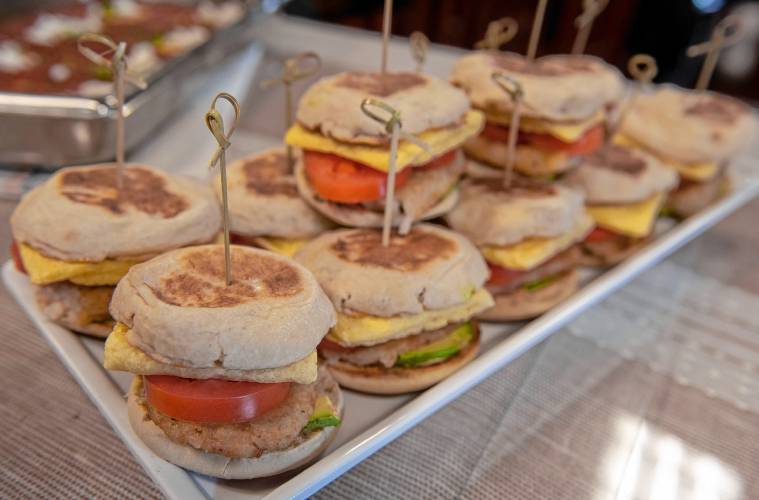
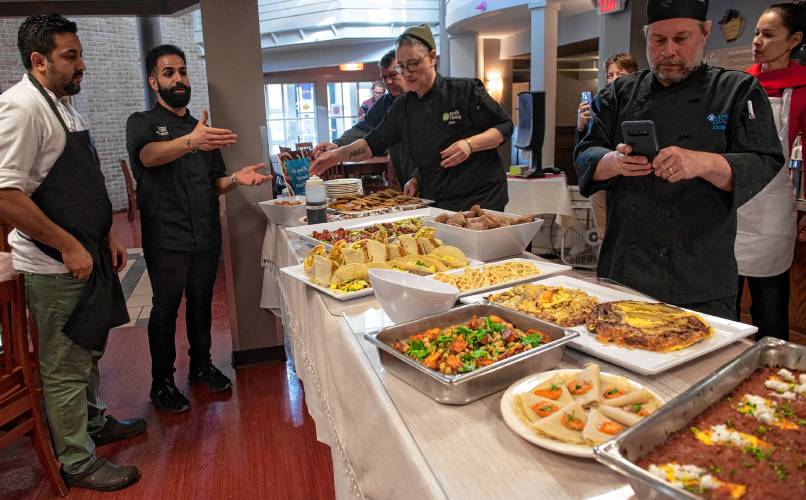
 Federal probe targets UMass response to anti-Arab incidents
Federal probe targets UMass response to anti-Arab incidents Locking up carbon for good: Easthampton inventor’s CO2 removal system turns biomass into biochar
Locking up carbon for good: Easthampton inventor’s CO2 removal system turns biomass into biochar William Strickland, a longtime civil rights activist, scholar and friend of Malcolm X, has died
William Strickland, a longtime civil rights activist, scholar and friend of Malcolm X, has died
